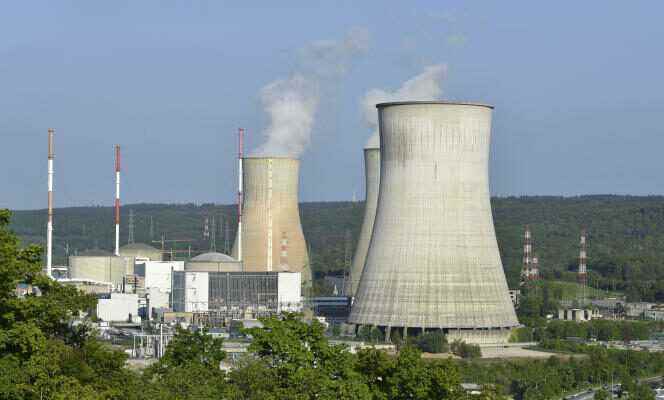The announcement, in March, of an extension until 2035 of two of the seven Belgian nuclear reactors was supposed to close a long story, dotted with twists and turns. This will not be the case: Engie-Electrabel has, as was foreseeable, decided to impose heavy requirements for this maintenance of activity. And threw a stone into the pond, Tuesday, May 31: in a letter to the Prime Minister, Alexander De Croo, the energy company asked the Belgian State to become a sort of co-operator of the power stations and to co-finance, not only the extension of Tihange 3 and Doel, but also the costs of dismantling the other reactors and waste treatment.
In a position of strength facing authorities who have dithered for a long time and are, moreover, confronted with the consequences of the war in Ukraine for gas supplies, the managing director of Engie, Catherine MacGregor, believes that the amount of the decisions that the group should assume amounts to 1 billion euros. A risk considered too important for a private operator who, moreover, had expressed his reluctance about the extension of the plants. Invoking its necessary “stability”the group nevertheless says it is keen to contribute to the security of supply in the country.
It is also the priority of the government assured, Thursday, June 2, Mr. De Croo. Which must, in principle, complete the negotiation with the French group before the end of June. The discussion promised, in any case, to be stormy. The Greens, members of the federal coalition, intend that Engie-Electrabel bears the costs of dismantling and waste alone, in the name of the “polluter pays” principle. The bill would reach a total of 40 billion euros and the environmental minister for energy, Tinne Van der Straeten, intends to have it paid in full by the operator.
Georges-Louis Bouchez, president of the Liberal Reform Movement, another majority party, also tensed the debate, saying that there was no question of the State paying for a private partner who, according to this leader , achieves a profit margin of almost 500% on each kilowatt-hour produced. Most of these dividends go back to Paris, where the group thus proves its solidity, adds the radical left. The Belgian power plants allowed the group to garner 583 million euros in the first quarter of 2022, says the daily From Standard.
“An additional Damocles Sword”
“We don’t negotiate this kind of thing in the public square”, affirms Mr. De Croo, trying to calm things down. His ministerial team has, in any case, refused so far any idea of co-exploitation. And it is still counting on an extension from 2025, while Engie highlights fuel supply problems, which could delay the deadline by one or two years, and therefore deprive the country of a remedy. nuclear for two winters. If it intends to subsidize, as planned, other production capacities – including gas-fired power stations, to be built – the government should, in any case, quickly determine whether or not it can count on the contribution of nuclear power, and until when.
You have 35.98% of this article left to read. The following is for subscribers only.
